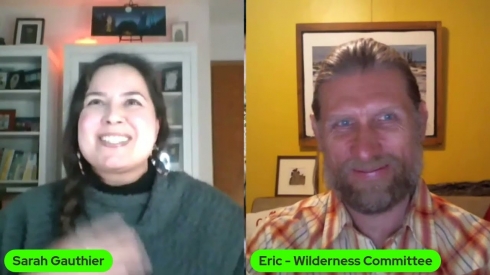- Start playing the video
- Click CC at bottom right
- Click the gear icon to its right
- Click Subtitles/CC
- Click Auto-translate
- Select language you want
SHA's Dr. Khaketla talks about COVID in Saskatchewan's North
If it's between typing numbers into spreadsheets or placing phone calls, the calls will be made.
The Saskatchewan Health Authority has reduced its reporting frequency in the north of the province from daily to weekly numbers, amid what its medical health officer Dr. Moliehi Khaketla calls a 'critical time'.
As of of January 14, 2021 there were 712 active Covid-19 cases in the province's Far North (3) regions (Far North Central, East, and West) which total 56.7 thousands persons, according to publicly available data.
That is roughly the same number of active cases (n = 765) as the City of Saskatoon on the same day--a city with 334.7 thousand persons, or roughly 6x the population of the collective Far North.
In understanding the great effort that is being done for Covid-19 case analysis in the Far North, the SHA's Dr. Khaketla spoke to both these high numbers and the difficulties we see in remote Saskatchewan for contact tracing.
'Sometimes it can be done, if it's relatively simple and a person has only a few contacts in an hour or so,' but that's not always the case 'sometimes hours or even days if we have trouble contacting that person, because they lack a phone' or for other reasons.
The investigations are sensitive and delicate work, with local health professionals being re-trained throughout the province to assist Public Health Nurses. This is a strong positive, says Dr. Khaketla, as these professionals know the social and cultural landscapes of their communities best.
In terms of vaccine inoculations in Saskatchewan's Far North, the MHO was happy to announce that all regions were proceeding at or above pace with our Southern neighbours, with more regular shipments expected to all (3) regions for the more moveable Moderna vaccine.
Dr. Khaketla spoke at length of the role of social media in mediating our understanding of these new vaccine technologies, and the importance of relying on accredited sources for information regarding safety and medical expectations.
'I hope that when people get their turn to get the vaccine they will definitely roll up their sleeves' said Dr. Khaketla 'the more that all of us are protected in the north' she said '... then the more protected we will all be'.
Add new comment
Missinipi Broadcasting Corporation’s beginnings go back to the early 1980’s. Prior to that, the north had received merely token attention in the area of communications.
Today MBC is heard in well over 70 communities, including many southern cities where thousands of ‘Urban Aboriginals’ now make their homes but still wish to keep informed of what is going on in the north. MBC’s Cree and Dene programming is nationally recognized as leading the field in indigenous communications, and has been shared with audiences as far away as the Northwest Territories, Alberta, BC, and Ontario.





We encourage comments which further the dialogue about the stories we post. Comments will be moderated and posted if they follow these guidelines:
The Community Media Portal reserves the right to reject any comments which do not adhere to these minimum standards.